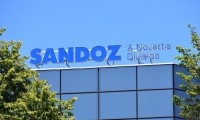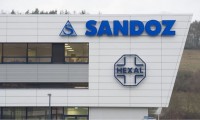-
FDA signs off on new uses for Astellas and Pfizer’s Xtandi, Merck’s Keytruda
- Source: drugdu
- 115
- November 21, 2023
-
Roche Cuts Pipeline as COVID, Currency Headwinds Impact Q3 Results
- Source: By Tristan Manalac
- 141
- October 31, 2023
-
Lilly’s Mirikizumab Shows Long-Term Remission in Phase III Crohn’s Trial
- Source: drugdu
- 109
- October 14, 2023
-
FDA to start review of subcutaneous Entyvio for Crohn’s disease
- Source: drugdu
- 129
- September 15, 2023
-
Sandoz partners with Samsung Bioepis to license Stelara biosimilar
- Source: drugdu
- 102
- September 13, 2023
-
analysts
- Source: drugdu
- 116
- September 11, 2023
-
US announces first ten drugs up for Medicare price negotiation
- Source: drugdu
- 102
- August 31, 2023
-
FDA Approves Sandoz Biosimilar to Biogen’s MS Therapy Tysabri
- Source: drugdu
- 110
- August 29, 2023
-
Sandoz says its biosimilar matches Eylea in another threat to Regeneron’s blockbuster
- Source: drugdu
- 145
- August 17, 2023
-
ALX Oncology Axes Two CD47 Programs on Disappointing Results
- Source: drugdu
- 107
- August 15, 2023
your submission has already been received.
OK
Subscribe
Please enter a valid Email address!
Submit
The most relevant industry news & insight will be sent to you every two weeks.













